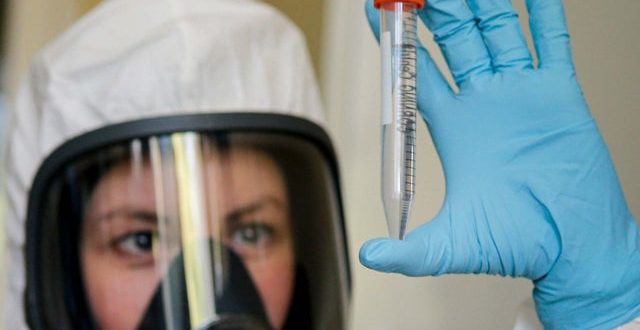Russia’s experimental coronavirus vaccine is set to be tested on more than 40,000 people across the country.
The potential vaccine, called Sputnik V in homage to the world’s first satellite, has already been approved by Russian authorities following two months of small-scale human trials – the results of which have not been made public yet.
Vladimir Putin announced regulatory approval for a test vaccine last week, claiming initial trials at Moscow’s Gamaleya Institute had demonstrated it was safe, effective and formed long-term immunity.
“A range of countries is running an information war against the Russian vaccine,” Kirill Dmitriev, head of the Russian Direct Investment Fund (RDIF) that is backing the vaccine, told a briefing.
Mr Dmitriev did not give details of the foreign research organisation supervising the project to ensure the data collection is fully in line with international standards – but claimed data would be provided to the World Health Organisation (WHO).
Scientists around the world have responded with great scepticism to Russia’s decision to approve the vaccine before trials involve thousands of participants. Such “phase 3” trials are usually considered essential precursors for a vaccine to secure regulatory approval.
Professor Francois Balloux, director of University College London’s Genetics Institute, said the decision to approve the vaccine so quickly had been “reckless and foolish”.
WHO Europe’s office said on Thursday that it has begun discussions with Russia to try to obtain more information about the vaccine and results of the initial trial.
Catherine Smallwood, a senior emergency official at WHO Europe said the agency had begun “direct discussions” with Russia and that WHO officials have been sharing “the various steps and information that’s going to be required” for WHO to make assessments.
“This concern that we have around safety and efficacy is not specifically for the Russia vaccine, it’s for all of the vaccines under development,” said Ms Smallwood.
She acknowledged WHO was taking an “accelerated approach” to try to speed development of coronavirus vaccines but said “it’s essential we don’t cut corners in safety or efficacy”.
The WHO official added: “We’re not going through a rushed job of trying to jump to conclusions here. We want to take our time to really understand where the vaccine’s at and to get as full information as possible on the steps that have already been taken.”
Russian officials said doctors might start getting vaccinated with their experimental shot this month and that mass campaigns could begin in October.
Russia has received requests for up to a billion doses of the vaccine from around the world and has capacity to produce 500 million doses per year via manufacturing partnerships, said Mr Dmitriev.
Mexico has told Moscow it is eager to have the Russian coronavirus vaccine once testing for the product is complete, Mexican foreign minister Marcelo Ebrard said on Wednesday.
After a meeting with Russia’s ambassador to Mexico, Mr Ebrard said on Twitter that he had communicated the country wanted “the vaccine as soon as possible”.
Two other potential Covid-19 vaccine candidates have already started such studies in the US and elsewhere, and will require about 30,000 people to receive the immunisation and be tracked afterward.
The Independent
 Lebanese Ministry of Information
Lebanese Ministry of Information



